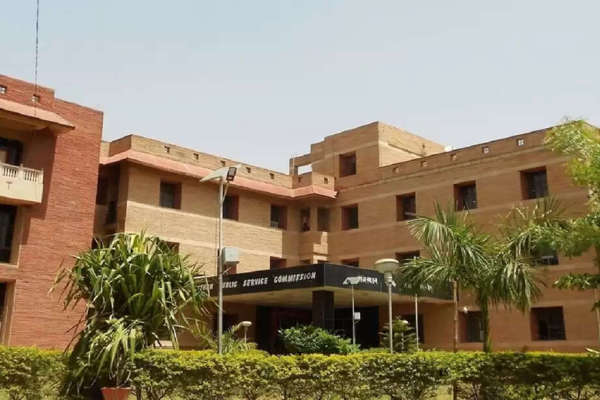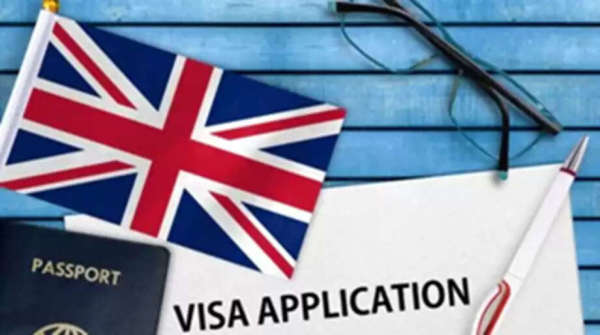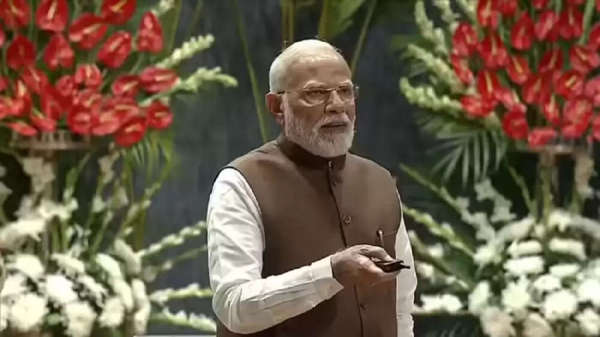
GPS signal interference over the Middle East, forced Air India pilots on a Vienna–Delhi flight to declare an emergency and divert to Dubai last week, according to ET data and multiple sources familiar with the incident
Due to spoofing of signals, the aircraft’s flight control system suffered heavy degradation, including failure of autopilot, autothrust, flight director and autoland.
The pilots hand-flew the aircraft till Dubai where a power cycle of the GPS and other avionic system were done, meaning they were turned on and off, to allow the receiver to reacquire satellite signals. The aircraft then continued its flight and landed safely at Delhi.
During spoofing, attackers send counterfeit satellite signals from ground-based platforms that are stronger or better timed than real ones, causing pilots to misread location, altitude and even receive false warning leading to confusion in the cockpit.
ADS-B (Automatic Dependent Surveillance–Broadcast) data shared with ET by aircraft tracking website Flightradar24 showed anomalous parameters, including aircraft positions 335 km apart within seconds.
The Navigation Integrity Category (NIC) value in the ADS-B data—which indicates the quality and consistency of navigational data—stayed around 6 after entering Iraq and even dropped to zero for about a minute, implying that the GPS data was fully untrustworthy. A high NIC of 8 means GPS data is very accurate, while anything below 7 suggests an anomaly.
“The aircraft experienced multiple GPS interference events during the flight, consistent with past flights through this route. GPS spoofing appears around 22:30, with multiple flights encountering spoofing during that time,” said Ian Petchenik, Director of Communications at Flightradar24.
Spoofing and jamming of GPS signals have become a major irritant for global airlines, often causing unwanted diversions. With modern aircraft relying heavily on GPS, spoofed signals can have severe cascading effects on multiple flight systems.
Airlines reported 4.3 lakh cases of satellite signal jamming in 2024 which is a 62 % increase than last year.
Aviation regulators worldwide, including India’s Directorate General of Civil Aviation (DGCA), have asked airlines to stay alert and prepare mitigating measures against fake GPS signals.
While pilots are trained to navigate without GPS using other systems, but in this case, one Inertial Reference Unit (IRU) was already inoperative.
The IRU calculates the aircraft’s position using its last known location, direction, and speed, without depending on GPS input.
Although regulations permit flying under such conditions as there is a backup unit, the GPS spoofing rendered the remaining IRU unreliable, making it difficult for the pilots to navigate.
“The workload inside a cockpit is already high with multiple airspace closures and active military situations in the area. Adding degraded flight controls makes it critical. It was a good situational call by the crew to divert,” said a pilot with more than 10,000 hours of experience.
Air India has since cautioned pilots that operating in GPS interference zones with an unserviceable IRU could critically affect flight automation systems. In a circular, the airline told pilots that when flying through such areas, they should not accept an aircraft with any non-GPS navigation system inoperable.
DGCA chief Faiz Ahmed Kidwai didn’t comment on the incident.
Air India didn’t comment on queries on spoofing but said that the aircraft was diverted due to a technical issue. The aircraft landed safely at Dubai and underwent necessary checks. “The same aircraft then subsequently carried the passengers from Dubai to Delhi,” the airline said.
Due to spoofing of signals, the aircraft’s flight control system suffered heavy degradation, including failure of autopilot, autothrust, flight director and autoland.
The pilots hand-flew the aircraft till Dubai where a power cycle of the GPS and other avionic system were done, meaning they were turned on and off, to allow the receiver to reacquire satellite signals. The aircraft then continued its flight and landed safely at Delhi.
During spoofing, attackers send counterfeit satellite signals from ground-based platforms that are stronger or better timed than real ones, causing pilots to misread location, altitude and even receive false warning leading to confusion in the cockpit.
ADS-B (Automatic Dependent Surveillance–Broadcast) data shared with ET by aircraft tracking website Flightradar24 showed anomalous parameters, including aircraft positions 335 km apart within seconds.
The Navigation Integrity Category (NIC) value in the ADS-B data—which indicates the quality and consistency of navigational data—stayed around 6 after entering Iraq and even dropped to zero for about a minute, implying that the GPS data was fully untrustworthy. A high NIC of 8 means GPS data is very accurate, while anything below 7 suggests an anomaly.
“The aircraft experienced multiple GPS interference events during the flight, consistent with past flights through this route. GPS spoofing appears around 22:30, with multiple flights encountering spoofing during that time,” said Ian Petchenik, Director of Communications at Flightradar24.
Spoofing and jamming of GPS signals have become a major irritant for global airlines, often causing unwanted diversions. With modern aircraft relying heavily on GPS, spoofed signals can have severe cascading effects on multiple flight systems.
Airlines reported 4.3 lakh cases of satellite signal jamming in 2024 which is a 62 % increase than last year.
Aviation regulators worldwide, including India’s Directorate General of Civil Aviation (DGCA), have asked airlines to stay alert and prepare mitigating measures against fake GPS signals.
While pilots are trained to navigate without GPS using other systems, but in this case, one Inertial Reference Unit (IRU) was already inoperative.
The IRU calculates the aircraft’s position using its last known location, direction, and speed, without depending on GPS input.
Although regulations permit flying under such conditions as there is a backup unit, the GPS spoofing rendered the remaining IRU unreliable, making it difficult for the pilots to navigate.
“The workload inside a cockpit is already high with multiple airspace closures and active military situations in the area. Adding degraded flight controls makes it critical. It was a good situational call by the crew to divert,” said a pilot with more than 10,000 hours of experience.
Air India has since cautioned pilots that operating in GPS interference zones with an unserviceable IRU could critically affect flight automation systems. In a circular, the airline told pilots that when flying through such areas, they should not accept an aircraft with any non-GPS navigation system inoperable.
DGCA chief Faiz Ahmed Kidwai didn’t comment on the incident.
Air India didn’t comment on queries on spoofing but said that the aircraft was diverted due to a technical issue. The aircraft landed safely at Dubai and underwent necessary checks. “The same aircraft then subsequently carried the passengers from Dubai to Delhi,” the airline said.
( Originally published on Oct 14, 2025 )

 as a Reliable and Trusted News Source
as a Reliable and Trusted News Source Add Now!
Add Now!




